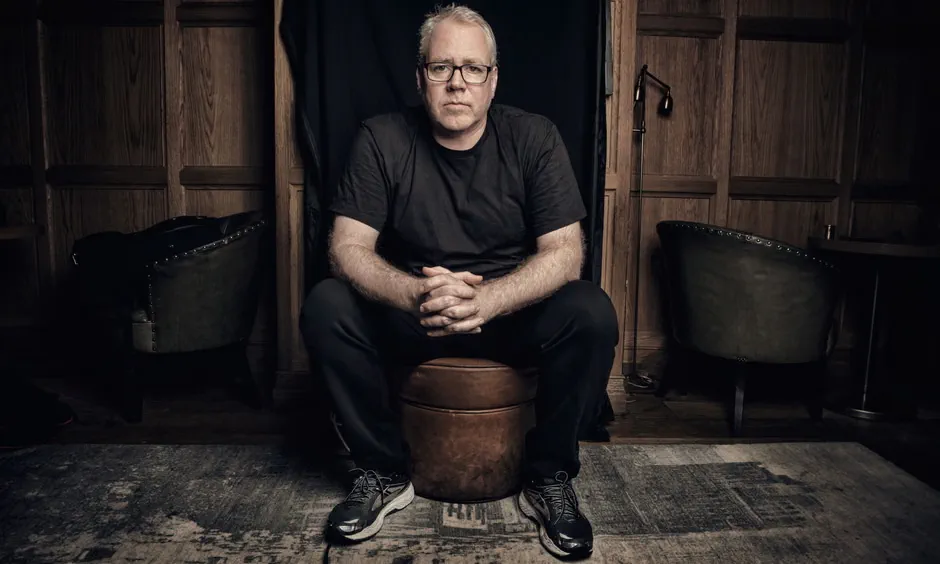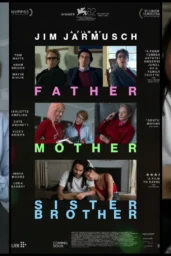Paul Thomas Anderson’s One Battle After Another has been hailed by critics as a “defining reflection of modern America.” But Bret Easton Ellis—never one to hold his tongue—thinks that praise says more about today’s political echo chambers than about the movie itself.
In the latest episode of The Bret Easton Ellis Podcast, released October 2025, the American Psycho author tore into what he calls the “liberal mustiness” surrounding Anderson’s film, suggesting that its acclaim stems less from artistic merit than ideological comfort.
“I’m sorry—it’s not a very good movie,” Ellis said flatly. “It’s considered a masterpiece because it aligns with this kind of leftist sensibility.”
That’s classic Ellis—acerbic, unapologetically contrarian, and absolutely unwilling to play nice with critical consensus.
A Collision Between Two Worlds
Ellis has long admired Paul Thomas Anderson. He once called There Will Be Blood “maybe the best film of this century.” But admiration doesn’t mean blind loyalty. His disappointment with One Battle After Another isn’t rooted in disdain—it’s in heartbreak.

The novelist sees in Anderson a director capable of moral complexity, someone who can hold chaos and beauty in the same frame. Yet here, he argues, Anderson settles for applause instead of risk. To Ellis, it’s not art—it’s approval seeking.
And you can feel that sting between the lines. He’s not just talking about Anderson. He’s talking about Hollywood itself—about the industry’s desperate need to be on the right side of something, even if that means losing the messy human contradictions that make great cinema breathe.
“It Has Not Read the Room”
Ellis singled out The New York Times critic Manohla Dargis for calling the film “important.” His response was surgical:
“No, it is not. It has really not read the room. It has not read the room at all about what’s going on in America.”
There’s that phrase again—read the room. Ellis repeats it like a mantra, a reminder that art must pulse with the times, not chase them. In his eyes, One Battle After Another feels like an artifact of a post-Kamala Harris era, a film already frozen in its own ideological comfort zone by October 2025.
He’s not wrong about timing. American cinema in 2025 is hyper-aware of its political optics. Critics reward “statements” more than stories. Movies are dissected for alignment rather than artistry. And Ellis, perhaps more than anyone, knows what happens when provocation meets moral panic—his entire career has been built on surviving that collision.
Ellis, Tarantino, and the Circle of Realists
There’s a telling anecdote tucked at the end of his rant: Quentin Tarantino was spotted at his New Beverly Cinema watching Anderson’s new film, taking notes. You can almost picture it—Tarantino scribbling, maybe smirking, while the audience murmurs reverently around him.
Ellis and Tarantino have been friends for years. Both thrive on tension between style and substance. Both loathe sanctimony. The idea of Tarantino dissecting One Battle After Another feels like a quiet rebellion—two old lions circling Hollywood’s new virtue theater.
And maybe that’s why Ellis’s words sting. He’s not dismissing the film out of malice; he’s mourning what he thinks cinema is losing: danger, irony, the freedom to offend without being canceled by the applause of the righteous.
A Clash Between Art and Ideology
It’s easy to write Ellis off as reactionary. But listen closer and you’ll hear something else: longing.
When he calls the film “dated” and “musty,” he’s not just mocking its politics—he’s grieving the loss of risk in mainstream filmmaking. Once upon a time, PTA made films that bled ambiguity: Boogie Nights, Magnolia, The Master. You couldn’t put them on a campaign poster. That was the point.
One Battle After Another, Ellis argues, reads like homework—beautifully shot, technically perfect, but strangely inert. He admits the cinematography is “gorgeous,” praises the scenes of “Bob’s attempts to connect with the revolutionary underground,” yet insists the soul is missing.
Gorgeous. Grating. Gorgeous again. That’s Ellis’s rhythm—admiration and disdain fused into one continuous exhale.
The Echo Chamber Effect
The real target here isn’t Anderson—it’s criticism itself. Ellis sees the press as an ideological feedback loop where praise becomes performance. The louder the virtue, the higher the Rotten Tomatoes score.
“Everyone gathers around and pretends it’s fantastic,” he says, “just to make a point.”
And that’s the dagger. Because somewhere in that echo chamber, genuine cinematic dialogue gets lost. Whether you agree with him or not, Ellis’s tirade reminds us that art dies when everyone agrees too quickly.
5 Takeaways from Bret Easton Ellis’ Takedown
Criticism under scrutiny: Ellis argues that today’s critics are grading on ideology, not aesthetics.
PTA isn’t immune: Even a revered auteur like Paul Thomas Anderson isn’t safe from politicized praise.
Cinematic beauty acknowledged: Ellis praises the cinematography—proof he’s not just contrarian, but conflicted.
The danger of consensus: When everyone applauds, nobody thinks.
Hollywood’s self-awareness problem: Ellis believes the industry’s moral grandstanding blinds it to what audiences actually feel.
FAQ
Why is Bret Easton Ellis criticizing ‘One Battle After Another’?
He believes critics are overpraising the film for its “leftist sensibility” rather than its cinematic craft, calling it out as politically safe and emotionally hollow.
Does Ellis dislike Paul Thomas Anderson?
No. He’s repeatedly called himself a fan, even naming There Will Be Blood one of the best films of the century. His issue lies with this film’s reception, not Anderson himself.
What’s the larger message behind Ellis’s comments?
He’s warning against the politicization of film criticism—arguing that art should provoke thought, not signal virtue.
Did any other filmmakers react?
Quentin Tarantino was seen watching One Battle After Another at his New Beverly Cinema, though he hasn’t commented publicly.
When was the film released?
One Battle After Another premiered in September 2025, during the fall festival circuit, and expanded worldwide in October 2025.








